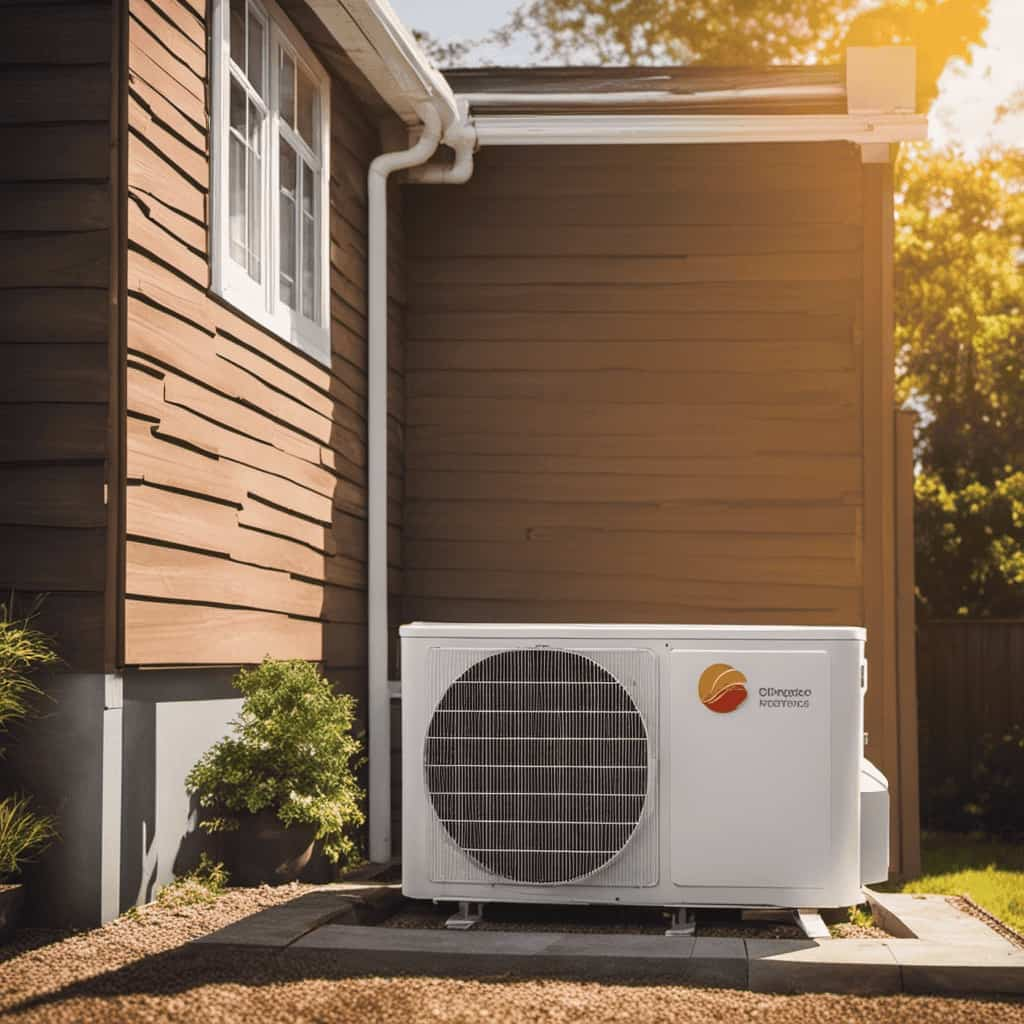Have you ever experienced the frustration of a rising energy bill and a heating and cooling system that just doesn’t work well? What if there was a solution that could provide year-round comfort, save you money, and reduce your carbon footprint?
Enter residential heat pumps. With their energy-efficient technology, cost savings, and improved indoor air quality, heat pumps are becoming the go-to choice for homeowners looking to upgrade their HVAC systems.
In this article, we’ll uncover the key benefits of residential heat pumps and how they can transform your home.
Key Takeaways
- Residential heat pumps provide energy-efficient heating and cooling solutions, reducing energy consumption and utility bills.
- They contribute to a reduced carbon footprint by utilizing renewable energy sources and reducing greenhouse gas emissions.
- Heat pumps improve indoor air quality by filtering out pollutants, allergens, and odors, leading to healthier living spaces.
- Heat pumps offer year-round comfort and temperature control, providing a cost-effective alternative to traditional heating and cooling systems.
Energy Efficiency
Our research has shown that using a heat pump in our homes can significantly improve energy efficiency.

Heat pumps are designed to transfer heat from one place to another, rather than generate heat directly. This means that they consume less energy compared to traditional heating and cooling systems.
By utilizing the natural heat in the air, ground, or water, heat pumps can provide efficient heating in the winter and cooling in the summer. This results in substantial energy savings and reduced energy consumption.
The advanced technology of heat pumps allows them to achieve high levels of efficiency, with some models even boasting energy efficiency ratios (EER) above 20.
With lower energy consumption, homeowners can enjoy reduced utility bills while also contributing to a more sustainable and environmentally friendly future.

Cost Savings
By using a heat pump, we can save on costs associated with heating and cooling our homes. Heat pumps are known for their cost effectiveness and can provide a significant return on investment over time. Compared to traditional heating and cooling systems, heat pumps are more energy efficient, which means lower utility bills. They work by transferring heat from the outside air or ground to heat your home in the winter, and vice versa in the summer for cooling. This efficient operation minimizes the amount of energy needed to maintain a comfortable indoor temperature, resulting in substantial savings. Additionally, heat pumps can be paired with smart thermostats and zoning systems to optimize energy usage and further reduce costs. With their impressive cost savings potential, heat pumps are an excellent choice for homeowners looking to save money while enjoying a comfortable indoor environment.
Transition: In addition to the significant cost savings, heat pumps also have a positive environmental impact. Let’s explore this aspect further.
Environmental Impact
When it comes to residential heat pumps, one of the key benefits is their energy efficiency. These systems are designed to provide heating without wasting excess energy, resulting in lower carbon emissions.
Energy-Efficient Heating Option
Heat pumps offer homeowners an energy-efficient and environmentally friendly heating option. These systems utilize renewable energy sources, such as the air, ground, or water, to provide warmth to homes. By extracting heat from these sources and transferring it indoors, heat pumps can achieve significant energy savings compared to traditional heating systems. This is because they don’t generate heat directly but rather move it from one place to another.
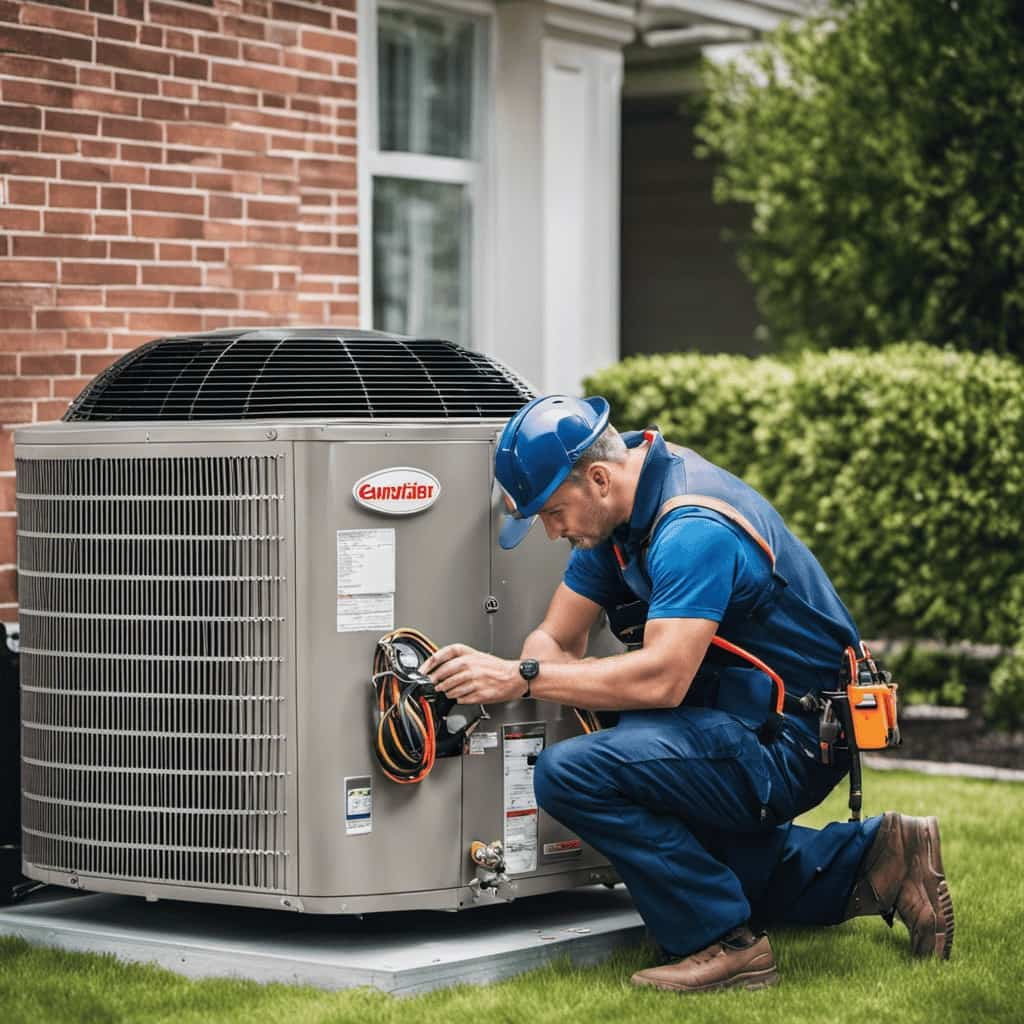
The energy efficiency of heat pumps is measured by their coefficient of performance (COP), which indicates the amount of heat produced per unit of electricity consumed. High COP values mean greater energy savings. Additionally, heat pumps reduce greenhouse gas emissions by using renewable heating sources, helping to mitigate the environmental impact of heating homes.
Reduces Carbon Footprint
Our residential heat pump not only reduces our carbon footprint but also minimizes our environmental impact. Installing a heat pump can significantly reduce carbon emissions, contributing to environmental sustainability. Here are five key ways in which our heat pump achieves this:
-
Energy efficiency: Heat pumps operate by transferring heat rather than generating it, resulting in lower energy consumption compared to traditional heating systems.
-
Renewable energy compatibility: Heat pumps can be powered by renewable energy sources such as solar or wind, further reducing carbon emissions.

-
Reduced reliance on fossil fuels: By using electricity instead of fossil fuels like oil or gas, heat pumps help decrease our dependence on non-renewable energy sources.
-
Heat recovery: Some advanced heat pump systems can recover excess heat from other processes, reducing energy waste and carbon emissions.
-
Efficient temperature control: Heat pumps offer precise temperature control, avoiding unnecessary energy usage and consequent carbon emissions.
Sustainable Heating Solution
By choosing a residential heat pump, we can actively contribute to reducing our environmental impact and promoting sustainable heating solutions.

Residential heat pumps are a renewable energy technology that utilizes geothermal energy to provide efficient and eco-friendly heating for our homes.
Unlike traditional heating systems that burn fossil fuels, heat pumps extract heat from the air or ground and transfer it into our homes, making them highly energy-efficient.
This not only reduces our dependence on non-renewable resources but also decreases greenhouse gas emissions, helping to combat climate change.
Moreover, heat pumps can also be used for cooling purposes, further maximizing their energy-saving potential.

Improved Indoor Air Quality
When it comes to residential heat pumps, one of the key benefits is the improved indoor air quality they provide.
With a heat pump system, you can enjoy a cleaner breathing environment as it helps filter out dust, pollen, and other allergens from the air.
This leads to healthier living spaces and reduced triggers for allergies and respiratory issues.
Cleaner Breathing Environment
How do heat pumps contribute to a cleaner breathing environment and improved indoor air quality?

Heat pumps play a crucial role in reducing air pollution and promoting respiratory health. Here are some ways in which heat pumps achieve this:
-
Filtration: Heat pumps are equipped with high-efficiency air filters that effectively capture airborne particles, such as dust, pollen, and pet dander.
-
Ventilation: Heat pumps provide fresh air exchange by introducing outdoor air into the indoor space, diluting indoor pollutants and improving air quality.
-
Humidity control: Heat pumps regulate indoor humidity levels, preventing the growth of mold and mildew, which can trigger respiratory issues.

-
No combustion: Unlike traditional heating systems, heat pumps don’t burn fossil fuels, reducing the release of harmful pollutants into the air.
-
Energy efficiency: By using less energy to operate, heat pumps reduce greenhouse gas emissions, contributing to a cleaner environment.
With cleaner indoor air, we can now transition into discussing how heat pumps create healthier living spaces.
Healthier Living Spaces
The improved indoor air quality provided by residential heat pumps creates healthier living spaces. Not only do heat pumps efficiently heat and cool your home, but they also contribute to better air quality by removing pollutants and allergens from the air. This is achieved through a process called air purification, which eliminates harmful particles and odors, creating a cleaner breathing environment for you and your family. Heat pumps work by circulating air through a filtration system, trapping dust, pollen, mold spores, and other contaminants. To illustrate the health benefits of residential heat pumps, consider the following table:

| Health Benefits of Residential Heat Pumps | ||
|---|---|---|
| 1. Reduced allergens | 2. Improved respiratory health | 3. Decreased risk of airborne diseases |
| 4. Elimination of unpleasant odors | 5. Enhanced overall well-being |
Reduced Allergy Triggers
We have found that residential heat pumps reduce allergy triggers and improve indoor air quality. This is especially beneficial for individuals who suffer from respiratory conditions or allergies. Here are some ways in which heat pumps contribute to improved respiratory health and enhanced home comfort:
-
Filtration: Heat pumps are equipped with advanced filters that capture allergens, such as dust, pollen, and pet dander, resulting in cleaner air circulating throughout the home.
-
Humidity control: Heat pumps can regulate humidity levels, reducing the growth of mold and mildew, which are common allergens.
-
Ventilation: Heat pumps provide fresh air exchange, removing stale air from indoors and bringing in clean, filtered air from outside.

-
Temperature consistency: Heat pumps maintain a consistent temperature, preventing the fluctuations that can trigger allergies and respiratory discomfort.
-
Energy efficiency: Heat pumps consume less energy compared to traditional heating and cooling systems, allowing homeowners to enjoy improved indoor air quality without compromising their energy bills.
By reducing allergy triggers and enhancing home comfort, residential heat pumps play a crucial role in creating healthier living spaces.
Now, let’s explore how these systems also provide year-round comfort.
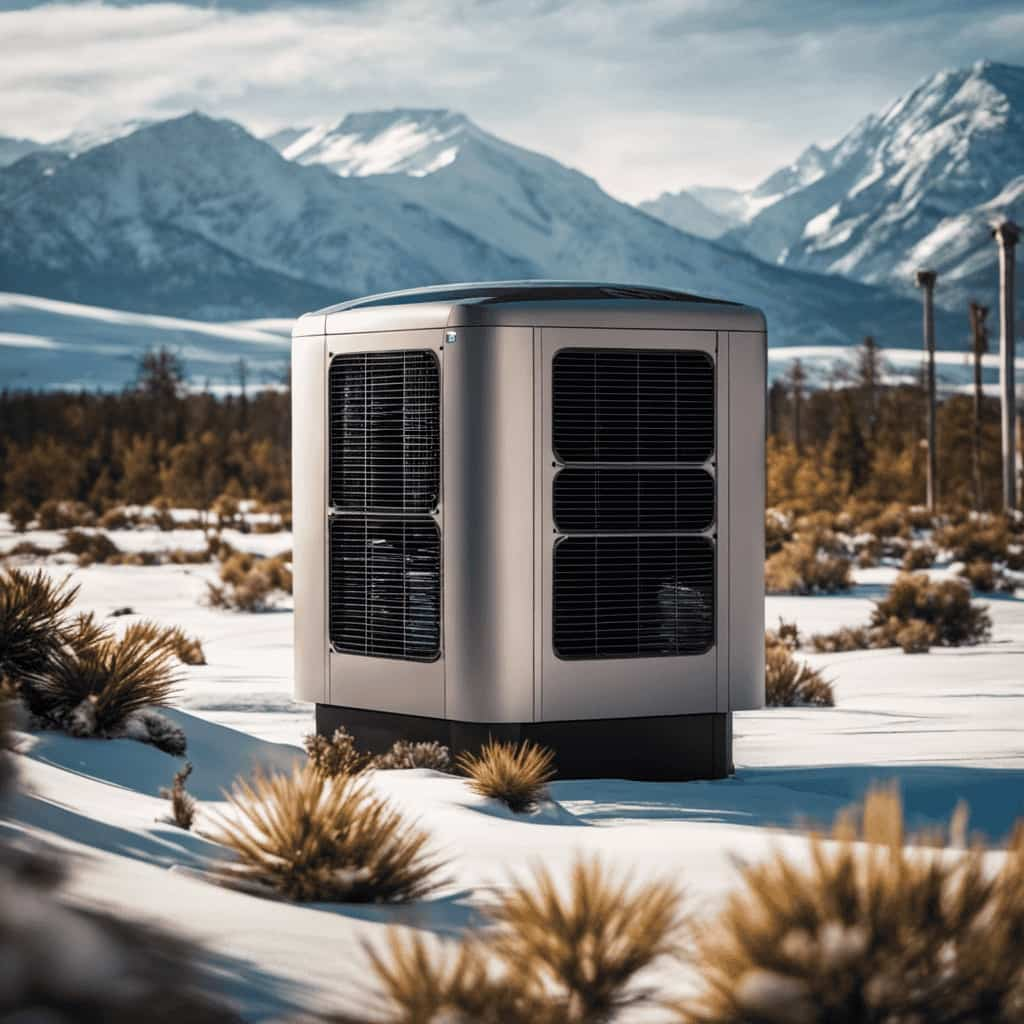
Year-Round Comfort
Throughout the year, we can enjoy consistent and comfortable temperatures in our homes with the use of residential heat pumps. Heat pumps provide year-round comfort by efficiently heating and cooling our living spaces. These systems work by extracting heat from the outdoor air during winter and transferring it indoors, and vice versa during summer.
The energy efficiency of residential heat pumps allows for optimal comfort without excessive energy consumption. By using advanced technology, heat pumps can efficiently regulate the temperature in our homes, ensuring a comfortable living environment no matter the season. Additionally, heat pumps offer a cost-effective solution for year-round comfort, as they can reduce energy bills compared to traditional heating and cooling systems.
With their ability to provide consistent temperatures and energy efficiency, residential heat pumps are an ideal choice for those looking to serve their home comfort needs.
Versatility in Heating and Cooling
Achieving optimal comfort in our homes is made possible by the versatility of residential heat pumps in heating and cooling. These systems offer a range of benefits, including:
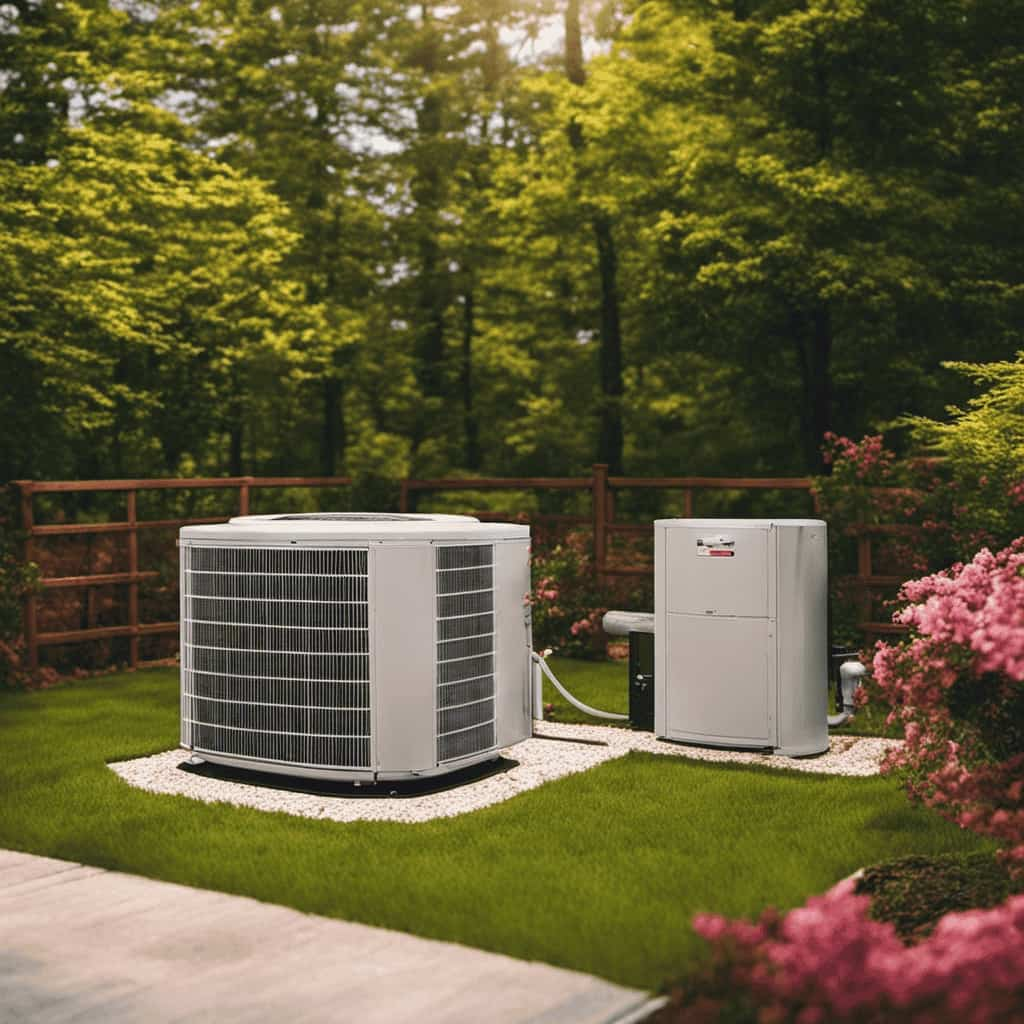
-
Efficient Heating Effectiveness: Residential heat pumps use advanced technology to extract heat from the outdoor air, even in cold temperatures. This allows them to provide reliable and efficient heating throughout the year.
-
Effective Cooling Capabilities: Heat pumps can also reverse their operation to provide cooling during hot summer months. By removing heat from the indoor air and transferring it outside, they keep homes cool and comfortable.
-
Year-round Temperature Control: With the ability to both heat and cool, heat pumps offer a complete solution for year-round temperature control in our homes.
-
Energy Efficiency: Heat pumps are highly energy-efficient compared to traditional heating and cooling systems. They can save homeowners significant amounts on their energy bills.
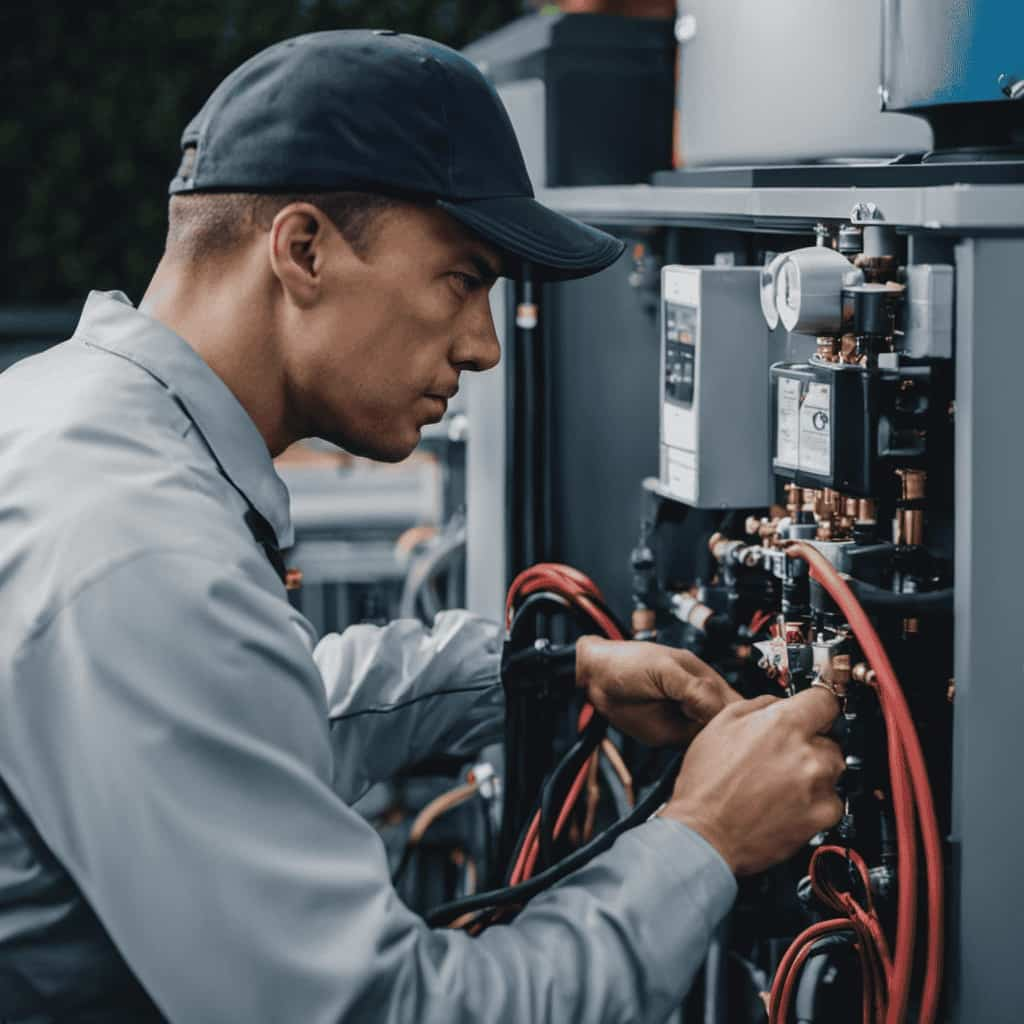
-
Environmentally Friendly: Heat pumps produce fewer greenhouse gas emissions compared to fossil fuel-based systems, making them a more sustainable choice for our homes.
Residential heat pumps provide the flexibility and convenience of both heating and cooling, ensuring optimal comfort and energy efficiency all year round.
Long-Term Durability
One of the key benefits of residential heat pumps is their long-term durability, which ensures reliable performance and minimal maintenance requirements. Heat pumps are designed to withstand the rigors of daily use, providing homeowners with peace of mind and longevity.
These systems are built with high-quality materials and undergo rigorous testing to ensure their durability. Heat pumps are engineered to operate efficiently for many years, even in harsh climates. With proper maintenance, a residential heat pump can last for up to 15 years or more.
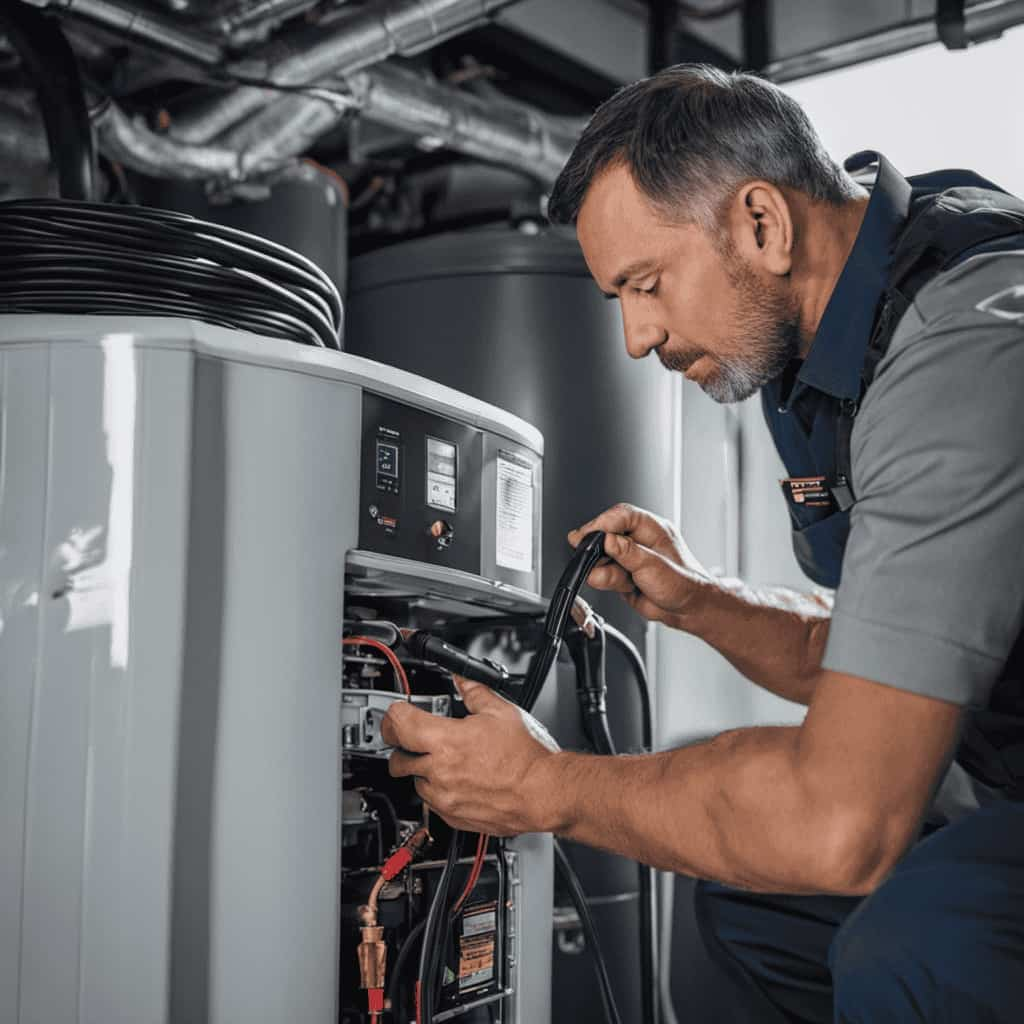
Regular inspections, filter changes, and cleaning are essential to maintain optimal performance and extend the lifespan of the heat pump. By investing in a durable heat pump and following recommended maintenance requirements, homeowners can enjoy reliable heating and cooling for years to come.
Reduced Carbon Footprint
How can residential heat pumps significantly reduce our carbon footprint?
Residential heat pumps are an excellent choice for reducing our carbon footprint due to their utilization of renewable energy sources. Here are five key reasons why heat pumps are environmentally responsible:
-
Energy Efficiency: Heat pumps use renewable energy sources like air, water, or ground to efficiently transfer heat, consuming less energy compared to traditional heating systems.

-
Reduced Emissions: By using renewable energy sources, heat pumps produce significantly lower greenhouse gas emissions, contributing to cleaner air and a healthier environment.
-
Decreased Fossil Fuel Dependency: Heat pumps reduce our reliance on fossil fuels, which are finite resources and major contributors to carbon emissions.
-
Sustainable Heating and Cooling Solution: By harnessing renewable energy, heat pumps provide a sustainable solution for both heating and cooling needs throughout the year.
-
Support for Renewable Energy Industry: Choosing heat pumps encourages the growth of the renewable energy industry, leading to more innovation and a greener future.

Government Incentives and Rebates
We can take advantage of government incentives and rebates to save money while installing residential heat pumps. These incentives are designed to encourage homeowners to adopt energy-efficient heating solutions, such as heat pumps, which can significantly reduce carbon emissions.
To be eligible for these incentives, homeowners must meet certain criteria, such as residing in a specific area or having a certain income level. The application process typically involves submitting documentation, such as proof of purchase and installation, to the relevant government agency or energy provider. It’s important to carefully review the eligibility requirements and application process to ensure a successful outcome.
Frequently Asked Questions
How Long Does It Typically Take for a Residential Heat Pump to Pay for Itself in Terms of Cost Savings?
It typically takes a residential heat pump several years to pay for itself in terms of cost savings. Factors such as energy efficiency, electricity rates, and climate can affect the payback period.
Are There Any Specific Maintenance Requirements for Residential Heat Pumps?
When it comes to residential heat pumps, there are specific maintenance requirements that should be followed. Regularly cleaning or replacing filters, checking refrigerant levels, and inspecting electrical connections are common maintenance practices that ensure optimal performance and efficiency.

Can a Residential Heat Pump Be Used as the Sole Heating and Cooling System for a Large Home?
Yes, a residential heat pump can be used as the sole heating and cooling system for a large home. However, it is important to consider the sizing requirements and ensure that the system is energy efficient.
How Does a Residential Heat Pump Improve Indoor Air Quality Compared to Traditional Heating and Cooling Systems?
Improving IAQ is one of the key benefits of a residential heat pump compared to traditional systems. It filters and circulates air, removing pollutants and allergens. Additionally, its energy efficiency helps maintain a healthy and comfortable indoor environment.
What Are Some Common Misconceptions About Residential Heat Pumps and Their Environmental Impact?
Common misconceptions about residential heat pumps and their environmental impact are often based on outdated information. However, these modern systems are highly efficient, reducing energy consumption and greenhouse gas emissions, making them environmentally friendly choices for heating and cooling.
Conclusion
In conclusion, residential heat pumps offer a multitude of benefits that make them a wise choice for homeowners. From energy efficiency and cost savings to improved indoor air quality and year-round comfort, these systems provide a versatile and durable solution for heating and cooling needs.
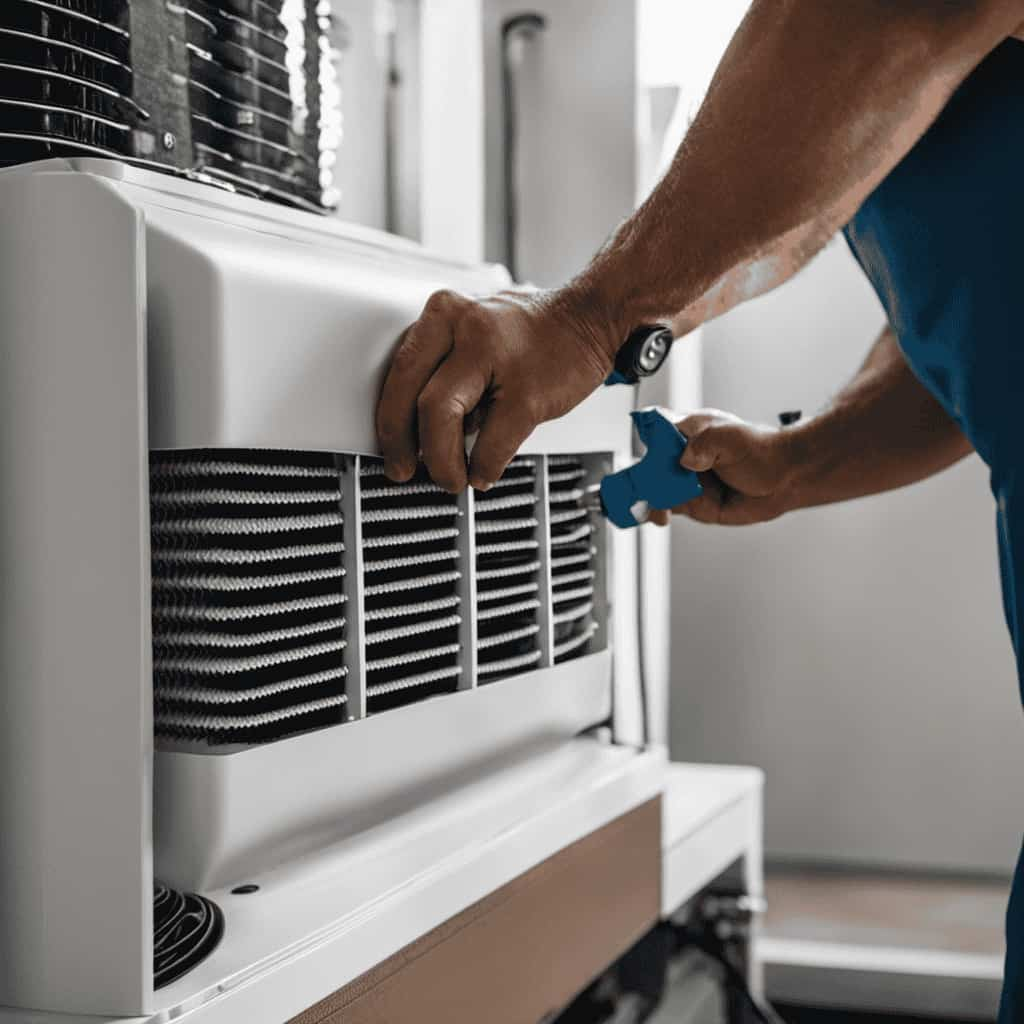
Additionally, they contribute to reducing carbon footprints and qualify for government incentives and rebates. By choosing a heat pump, homeowners can enjoy a more comfortable and sustainable living environment.
But there’s one more benefit you won’t believe…

